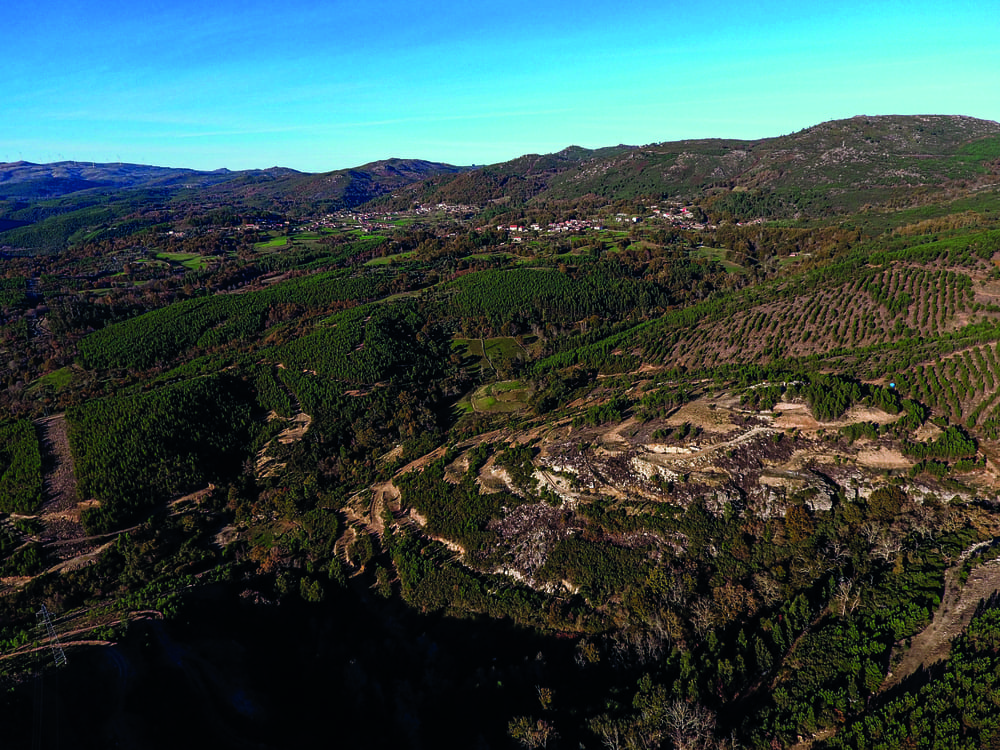Savannah Resources Eyes Leading Role in European Lithium Supply
Amid Europe’s push for critical minerals independence, Savannah Resources is advancing its Barroso Lithium Project in Portugal with production targeted for 2027. The project represents a strategic asset in Europe’s efforts to reduce dependence on Chinese dominance in the battery supply chain.
“Commodities in construction always have boom and bust cycles, and lithium has gone through a few booms and a few busts,R
...
Savannah Resources Eyes Leading Role in European Lithium Supply
Amid Europe’s push for critical minerals independence, Savannah Resources is advancing its Barroso Lithium Project in Portugal with production targeted for 2027. The project represents a strategic asset in Europe’s efforts to reduce dependence on Chinese dominance in the battery supply chain.
“Commodities in construction always have boom and bust cycles, and lithium has gone through a few booms and a few busts,” explains CEO Emanuel Proença. “It certainly is now in the period in which you are at the bottom or were at the bottom only a few months ago and are still trying to define exactly when momentum comes back.”
Despite current market challenges, Proença highlights that global lithium demand grew by over 25% last year, driven by electric vehicles and increasingly by battery storage systems.
The Barroso project’s initial phase aims to produce approximately 200,000 tons of spodumene concentrate annually at 5.5% lithium content, comparable in scale to early-stage Australian producers like Pilbara Minerals. The company has defined a resource of 28 million tons within its licensed area, with mineralization remaining open in multiple directions, suggesting significant expansion potential.
One key competitive advantage is the project’s favorable strip ratio of 6:1, which Proença describes as “top benchmark” and “one of the best strip ratios that you will have in the sector.” Additionally, the project boasts a 73% recovery rate that is “close to top class,” with laboratory testing achieving even higher recoveries.
The development could generate additional revenue streams through by-products including quartz, feldspar, and mica, which can be sold to nearby ceramics and insulation industries in Portugal and Spain. The project also benefits from access to a skilled local workforce and abundant renewable energy resources.
Europe’s strategic autonomy push has created a supportive environment for domestic lithium projects. “If we were in a football match, we would probably be in minute 15 of the first half, and China would have scored the goal,” Proença noted. “They clearly are ahead of the game, but there is plenty still to be played.”
European authorities have recognized that failing to develop domestic battery supply chains would threaten approximately 15 million jobs across the continent’s automotive sector. The European Commission’s Critical Raw Materials Act has moved at “warp speed” by European standards, demonstrating the urgency attached to securing strategic mineral supplies.
On the partnership front, Savannah has secured its first offtake agreement with AMG Critical Materials, which has decades of experience in critical minerals and operates Europe’s first large lithium refinery in Germany. AMG has also become a shareholder, providing important commercial validation.
The company has received a letter of intent from the German development bank KFW, supported by a bank guarantee from Allianz Trade. This support came even before the project received its strategic designation under the Critical Raw Materials Act.
Proença believes the company can secure favorable financing terms, potentially with a higher debt component than typical for mining projects, due to the strategic importance of European lithium supply and the project’s strong ESG credentials.
Recognizing that mining projects often face social acceptance challenges in densely populated Europe, Savannah has prioritized community engagement. “When I joined the project, I had a clear mandate to make the project more Portuguese, more understood locally, and more accepted by everyone,” Proença said. The project area is in an economically challenged region that has lost population to emigration, presenting an opportunity for positive economic impact.
Savannah is currently completing its Definitive Feasibility Study, expected by the end of 2025, with plans to begin construction in 2026 and start production in 2027. The company reports being fully funded through the DFS stage.
The project economics appear robust, with Proença stating that even at current depressed lithium prices, the Barroso project would be profitable. “At the scoping study level, we showed numbers in which we would break even at $600. [The project aims to be] in the middle of the global cost curve while producing in Europe.”
As Europe races to catch up in the battery materials space, Savannah’s Barroso project represents one of the continent’s most advanced hard rock lithium developments. The European Investment Bank’s recent decision to finance mining projects after a three-decade hiatus demonstrates the extraordinary priority now placed on securing domestic critical mineral supplies – a fundamental shift that could benefit strategically positioned companies like Savannah Resources.


